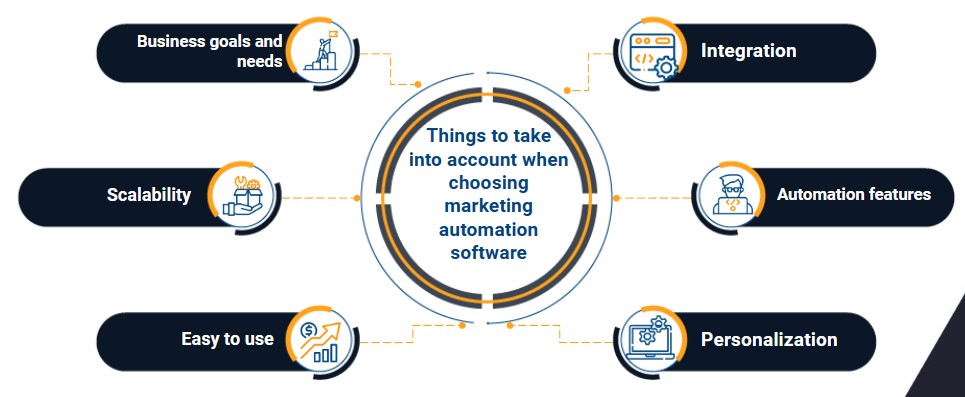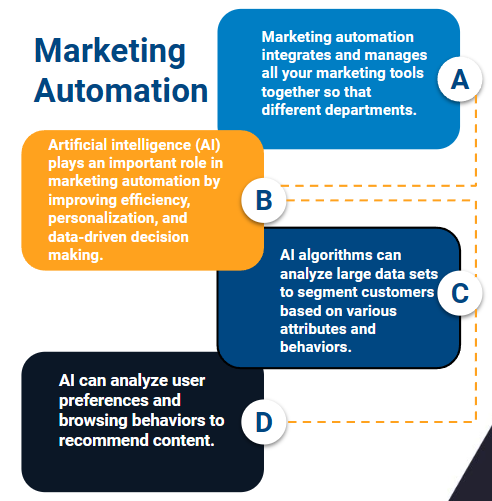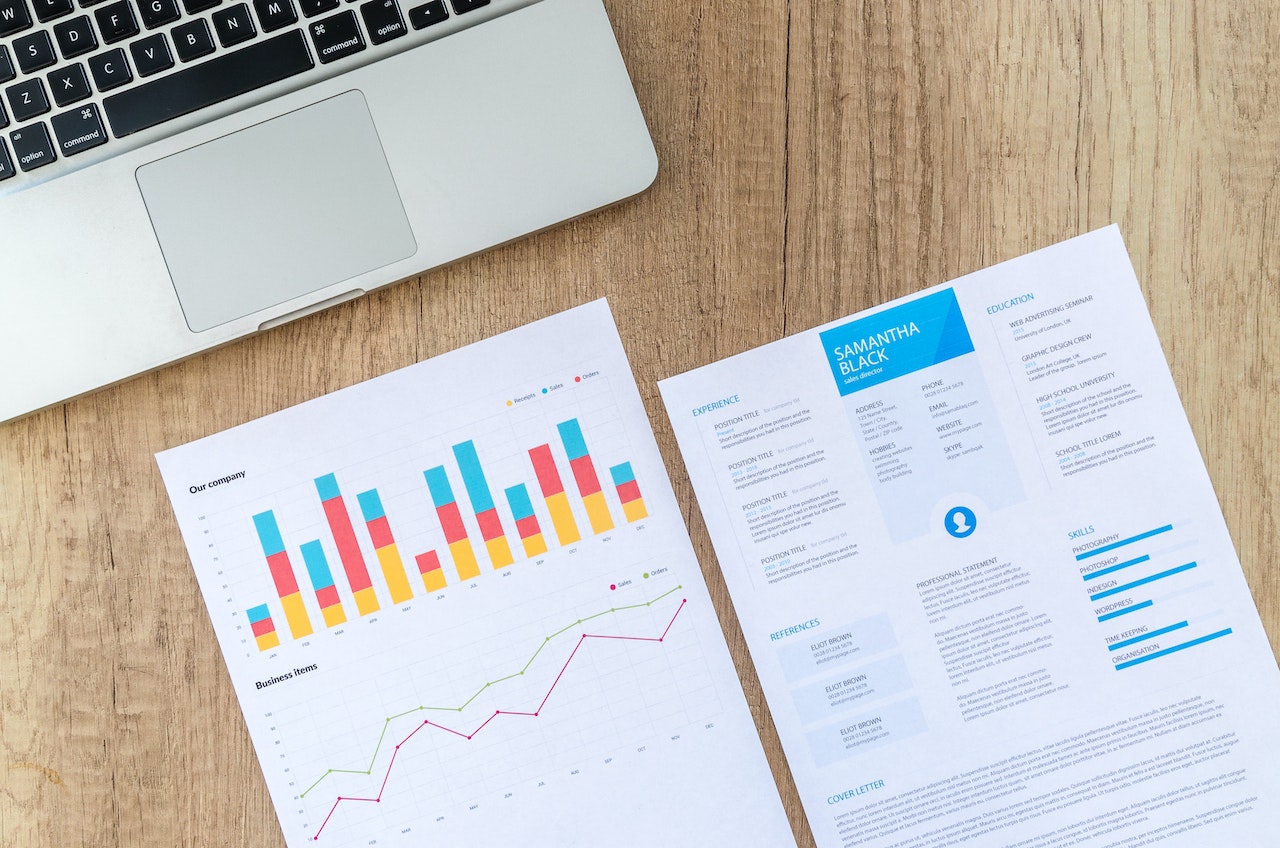The Role of Artificial Intelligence in Marketing Automation: How It's Changing the Game
October 04, 2023
Table of contents
Quick Access
We've been saying it since the beginning of 2023: artificial intelligence is the technology of the present and future, beneficial for a variety of business activities, including marketing automation.
Marketing automation connects and handles all of your marketing resources so that different departments, particularly marketing and sales, can manage different processes and campaigns while the mechanical labor is handled automatically. Artificial intelligence can tremendously help with this.
Artificial intelligence's market dominance
The presence of artificial intelligence in several industries became more noticeable in 2022, when it transitioned from novelty to technology with significant applications. Statista conducted a study that demonstrated this.
"Artificial intelligence (AI) is widely used for corporate finance, service operations, and strategies, with almost all industries reporting around 20% AI use in these functions," they revealed. "The financial services industry saw the most use of AI in product manufacturing, with more than 30 percent of respondents using AI in 2023. Manufacturing and marketing are less likely to adopt AI since they require individual human instincts and hence lend themselves less easily to AI applications."
Although artificial intelligence has not had a large presence in marketing, there are various solutions powered by this technology that can assist organizations' advertising departments, according to the findings of this study.

What is the role of artificial intelligence in marketing automation?
Artificial intelligence (AI) improves efficiency, personalization, and data-driven decision making in marketing automation. Let's look at some of the most important ways AI is employed in marketing automation:
- Customer Segmentation: Artificial intelligence systems can evaluate enormous data sets to segment clients based on numerous qualities and actions. Marketers can use segmentation to build highly targeted and individualized marketing programs.
- Predictive analytics: Using previous data, AI can forecast future customer behaviors and patterns. Marketers can utilize these predictions to improve their marketing strategy, such as anticipating which leads are most likely to convert or which items will be in high demand.
- Email marketing systems enabled by AI may customize email content, subject lines, and sending times for individual recipients. This level of personalization boosts engagement and conversion rates.
- AI can assess user preferences and browsing activities in order to propose appropriate content, products, or services to website users. This keeps consumers interested and enhances conversion rates.
- Virtual Assistants and Chatbots: AI-powered chatbots and virtual assistants may manage client inquiries, provide information, and even walk users through the shopping process 24 hours a day, seven days a week. They enhance customer service and user experiences.

- AI can score leads based on their chance of conversion. This allows sales teams to focus their efforts on leads that are most likely to convert into sales, resulting in higher conversion rates and efficiency.
- A/B Testing: By continuously optimizing marketing efforts in real time, AI can automate A/B testing. You may determine which ad variations, landing pages, or email content perform best and make changes as needed.
- Social media management: AI systems can monitor social media conversations and trends to assist marketers in identifying opportunities, tracking brand mentions, and successfully engaging with customers.
- Personalized recommendations: AI is frequently used by e-commerce platforms to recommend products to customers based on their previous behavior and preferences. This enhances the likelihood of cross-selling and upselling.
- Data Analysis and Reporting: Artificial intelligence can swiftly process and analyze massive volumes of marketing data, delivering insights that would be difficult or impossible to gain manually. Marketers can use data to make data-driven decisions and alter their tactics as needed.
- Marketing attribution: Artificial intelligence can assist marketers in understanding the customer journey and attributing conversions to multiple touchpoints. This enables them to better allocate their marketing money.
- While less common, AI can generate material such as product descriptions, blog entries, or even advertising copy, saving marketers time and resources.
Artificial intelligence is crucial in marketing automation because it enables marketers to streamline their processes, provide more personalized experiences to customers, and make data-driven decisions that result in higher ROI and stronger marketing campaigns. As AI advances, its impact on marketing automation is expected to expand even more.
We recommend you on video
Related Blogs
How to Select the Best Marketing Automation Software for Your Company
What to expect from an expert Mautic development company
Qué esperar de una empresa de desarrollo experta en Mautic

Benefits of predictive analytics for marketing

How might data analytics help with target audience segmentation?
